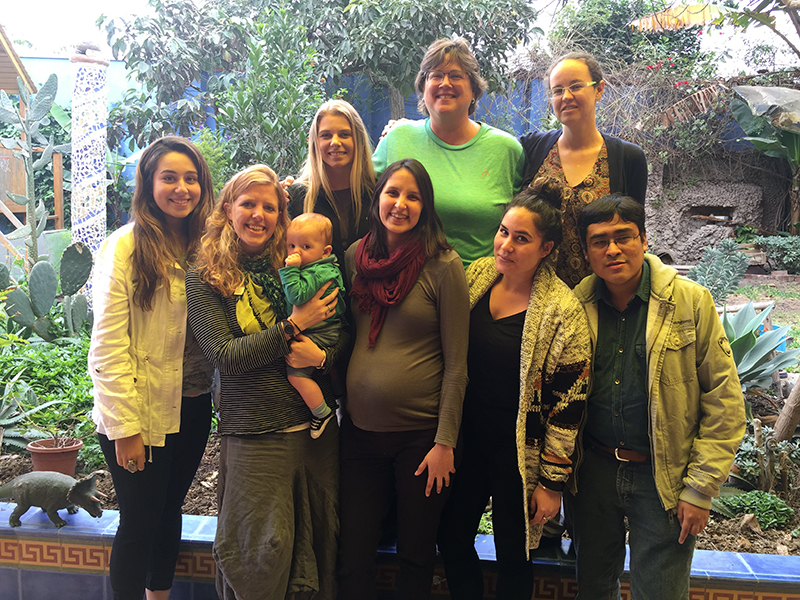
Vision
The vision of the Tulane University School of Public Health and Tropical Medicine Health Office for Latin America (HOLA), based in Lima, Peru, is to foster and promote collaborative public health research in Latin America between Tulane faculty and their Latin American research counterparts.
Mission
The mission is improve global health through research and education of the next generation of public health researchers and professionals. Through mentorship and opportunities to participate in research projects in Latin America, this office provides faculty and students with unique opportunities to collaborate with Latin American colleagues and on projects based in Latin America.
Activities
Educational
One aim of HOLA is to serve as a resource and guide for Tulane faculty and students who are interested in initiating research or other types of educational activities in Latin America. Students interested in summer research opportunities, practicum experiences, and independent study time in Latin America are encouraged to contact the HOLA Director for guidance.
Research
The main research areas being conducted through the Health Office for Latin America focuses on emerging infectious diseases and cervical cancer prevention. Moreover, some of the HOLA health projects focus on the intersection between human, animal and animal health: planetary health. Through collaborations with colleagues from multiple disciplines – ecology, medicine, veterinary sciences, geography – our research focuses on health issues within their setting and context.
Current Funded Research in Peru
- “Quantifying Heterogeneities in Dengue Virus Transmission Dynamics”. The major goals of this NIH/NIAID funded P01 project are to define key host-level heterogeneities that drive the spread of the mosquito-borne dengue virus. Tulane is one of the leads in Project 2 that focuses on examining the heterogeneity in the perceived symptoms and behavioral responses, including fine scale movement, to dengue.
- “Improving participation in door-to-door vector control campaigns”. The main objective of this NIH-funded R01 grant is to evaluate three strategies guided by behavioral economics principles to increase community participation in spraying to reduce triatomines and, in turn, prevent Chagas disease. The study is taking place in Arequipa, Peru.
- “Translating Molecular Diagnostics for Cervical Cancer Prevention into Practice.” The goal of this NIH/NCI funded R01 grant is to move a strong evidence base for the use of HPV-based screening assays into a sustainable screen-and-treat cervical cancer prevention program appropriate for the health care environment in Peru. This study is taking place in Lima and Iquitos.
- “The effect of anthropogenic perturbation on habitats”. The main objective is to evaluate effects of landscape changes resulting from anthropogenic habitat perturbation – specifically the construction of the asphalted Inter-Oceanic Highway through the biodiverse Madre de Dios region - on abundance, distribution, species diversity and composition of rodent communities. As part of this project, we are also examining the vulnerabilities and quality of life of individuals living along the Inter-Oceanic Highway.
- “Inter-American Training for Innovations in Emerging Infectious Diseases”. The goal of the program is to build teams of interdisciplinary researchers who can creatively and sustainably address challenges of emerging infectious diseases through development of low cost-effective tools. This NIH/Fogarty Center funded training grant funds post-doctorates from diverse disciplines to work together.
- “Tulane-Xavier Minority Training in International Health”. This goal of this school wide training grant funded by the NIH National Center on Minority Health and Health Disparities is to to provide training opportunities in international health for minority undergraduate and graduate students
Tulane Researchers
Valerie A. Paz Soldán, PhD, MPH
Director, Tulane Health Office for Latin America
Associate Professor, Department of Global Community Health and Behavioral Sciences
Tulane School of Public Health and Tropical Medicine
Calle Perez Roca 148A, Dpto 301, Barranco
Telf: (+51-1) 418-7404
Celular: (+51) 94020-6810
Skype: vpazsoldan
Affiliated Tulane Researchers Working In Latin America
- Pierre Buekens – Mexico, Argentina, Honduras
- Arachu Castro – most of Latin America
- Thom Eisele – Haiti
- Joe Keating – Haiti
- Carl Kendall – Brazil
- Richard Oberhelman– Peru
- Dawn Wesson - Peru
- Josh Yukich – Haiti
Current Affiliated Post-docs, Research Associates, and Students
Joanna Brown
Alejandra Bussalleu
German Comina
Stella Hartinger
Gustavo Hernandez
Kelly Jensen
Gwen Lee
Molly Mastel
Nehal Naik
Christina O’Neal
Amy Powell
Gabriela Salmon
Liz Tracy
